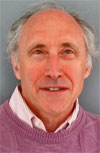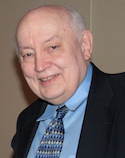
Liberating the “Innate Intelligence of the Body Politic”
by Terry Patten
On Sunday, July 15th, longtime Washington DC attorney and natural health advocate, Jim Turner, joined me for an inspiring conversation on what he calls the “innate intelligence of the body politic.”
It was unlike any of my previous dialogs, focusing (on the surface) not on spirituality and consciousness but on the practical matters of bringing holistic principles to bear on Washington, DC political processes, the kinds of issues we hear about on the news.

But Jim approached these issues from a very different perspective, and I left my conversation with him with an unexpected sense of uplift and inspiration. I highly recommend you download the dialog if you haven’t listened already!
Our conversation began with Jim describing the importance of and inspiring possibilities for transpartisanship in American politics, and then he explained the vision of the political organization he is now leading, Voice for HOPE (Healers of Planet Earth).

On the surface, Voice for HOPE’s purpose is to make “natural” (alternative, complementary, and integrative) approaches to health and healing an explicit and valued part of national health policy by tapping into the energy of the nearly one hundred organized “natural” health modalities currently being used by an estimated 200 million Americans. HOPE focuses that energy onto the national health policy debate by organizing a broad range of individuals and professionals (an undertaking intended to transcend political identities and affiliations) as “Citizen Healers” and training them to educate policymakers about the principles of natural healing (most of which liberate the “innate intelligence of the body”).
HOPE was founded on a subtle but radically holistic insight — that our politics function a lot like our individual health. There’s a fundamentally healthy, self-correcting, self-healing, intelligence to the “body politic”, and if we begin with this understanding, rather than with a presumption of problem and disease, we have reason to hope we can achieve the kind of results we really want.
From there, our conversation ranged far and wide. We discussed such things as:
* The California ballot initiative requiring the labeling of GMOs in food.
* The FDA’s withdrawal of its December 2011 proposal to restrict access to dietary supplements.
* A radical approach to tax reform—in which a transaction tax or “user fee” could replace the entire taxing system. On every transaction, the government would collect a fee of .6%. Although we’d need international partners, we could use this to replace the whole income tax code (which would appeal to partisans on both the right and the left.)
* The paradoxical intelligence (rather than naïve stupidity) of public attitudes (polls show we want to pay lower taxes AND get more services). Maybe we’re right!
Jim believes there’s a political impulse at loose in the country that has a resonance with these kinds of ideas. We aren’t hearing about them because they’re not fitting in to the existing left-right power struggle.
But there are many underlying (and usually unseen) polarities that often make for strange bedfellows (like the value of order, embraced by McCain and Feingold’s alliance on campaign finance reform, or the value of freedom, embraced by the NRA and the ACLU, both supporting the Citizens United decision.)
Or the fact that Chief Justice John Roberts recently wrote a decision in which he enumerated a series of ways in which corporations are not people.
Jim resonated with the simultaneous policy implementation ideas that John Bunzl put forward in his recent Beyond Awakening dialog (in fact, they’re endemic to his transaction tax idea.)
Interest piqued? I hope you’ll find time to either play online or download and tune into this inspiring and timely dialog. (Warning, if you do, you might find yourself feeling an unfamiliar sense of hope for our future.)



